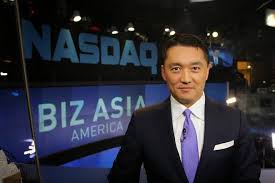In a rapidly evolving global economy, traditional approaches to financial leadership are no longer sufficient. To meet the complex challenges of the modern world, leaders must adapt and innovate. Benjamin Wey, a seasoned financier and entrepreneur, is rewriting the rules of financial leadership by blending strategic financial expertise with a deep commitment to ethical business practices and social responsibility. His approach to leadership goes beyond profits, offering a blueprint for how financial leaders can balance success with positive societal impact.
1. Financial Leadership with a Purpose
At the core of Benjamin Wey leadership philosophy is the belief that financial decisions should be driven by a clear sense of purpose. Traditional financial leadership often focuses solely on maximizing shareholder value, but Wey’s approach takes a more holistic view. He argues that businesses should align their financial goals with broader societal needs. By doing so, leaders can not only achieve financial success but also create lasting value for communities, employees, and the environment.
For Wey, financial leadership is not just about navigating market fluctuations or managing risk—it’s about using resources to contribute to social good. Whether through sustainable investments, supporting education, or fostering economic empowerment, he believes financial decisions should contribute to solving global challenges. This purpose-driven approach is key to his vision of financial leadership.
2. Innovation and Adaptability in Financial Strategy
Benjamin Wey understands that the financial landscape is constantly shifting. Traditional models of financial leadership, based on established methods and practices, are often ill-equipped to handle today’s rapid technological advancements and economic uncertainties. To stay ahead, leaders must embrace innovation and adaptability.
Wey’s approach to financial leadership emphasizes the importance of staying agile in the face of change. Whether through adopting new technologies, exploring alternative investment opportunities, or rethinking business models, Wey encourages financial leaders to be forward-thinking and open to disruptive ideas. This ability to innovate is a critical part of his approach, as it allows businesses to not only survive in a competitive marketplace but thrive.
3. Ethical Leadership and Social Responsibility
Another cornerstone of the Benjamin Wey approach is ethical leadership. In a world where trust in institutions is increasingly fragile, Wey stresses the importance of transparency, integrity, and accountability in all financial dealings. He believes that financial leaders must be stewards of not only their company’s bottom line but also the social and environmental impact of their decisions.
Wey’s commitment to ethical leadership is evident in his focus on socially responsible investing (SRI) and environmental, social, and governance (ESG) criteria. By prioritizing businesses that operate with strong ethical standards and a commitment to sustainable practices, he is helping to redefine what it means to be a successful financial leader in the 21st century.
4. Creating Long-Term Impact
Unlike the short-term focus that often characterizes traditional financial strategies, Benjamin Wey advocates for long-term thinking. He encourages leaders to adopt a long-range view of success, one that values sustainability and lasting positive impact over quick wins. This perspective allows businesses to build enduring legacies while contributing to broader societal goals, such as reducing inequality, addressing climate change, and fostering inclusive economic growth.
By making long-term decisions that balance profit with purpose, Wey’s financial leadership model offers a more sustainable path to success. This approach not only benefits businesses but also helps to create a more equitable and responsible global economy.
5. A New Era of Financial Leadership
Benjamin Wey’s approach to financial leadership is a bold reimagining of what it means to be a successful leader in today’s world. By blending financial acumen with innovation, purpose, and ethical responsibility, he is leading the charge for a new era of leadership. His model shows that financial leaders can—and should—be agents of positive change, using their influence and resources to shape a better future for both businesses and society. Through his work, Wey is proving that rewriting the rules of financial leadership isn’t just possible—it’s essential.
